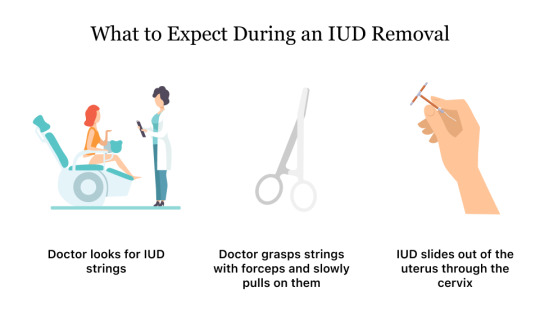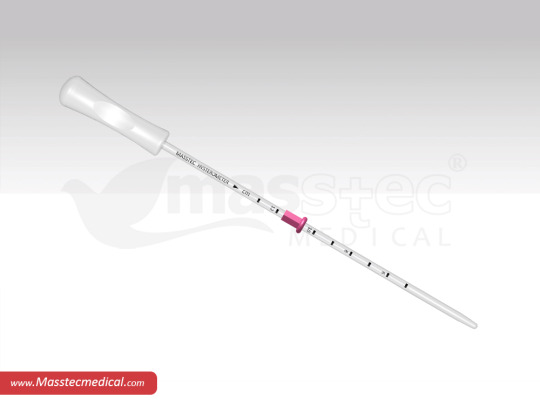#uterine polyps
Explore tagged Tumblr posts
Text
Symptoms and Causes of Uterine Polyps
Uterine polyps are growths in the lining of the uterus. They are usually benign, but can sometimes be cancerous.

The most common symptom of uterine polyps is abnormal vaginal bleeding. Other symptoms may include pelvic pain, infertility, and heavy menstrual bleeding.
The exact cause of uterine polyps is unknown, but they are thought to be caused by a combination of factors, including
Hormonal imbalances
Inflammation
Genetic mutations
There is no specific treatment for uterine polyps, but they can often be removed with surgery or medication.
Here are some of the most common symptoms of uterine polyps:
Abnormal vaginal bleeding, such as heavy menstrual bleeding, bleeding between periods, or bleeding after menopause
Pelvic pain
Infertility
Heavy menstrual bleeding
If you experience any of these symptoms, it is important to see a doctor to get a diagnosis and treatment.
#Uterine Polyps#endometrial polyp#causes of uterine polyps#symptoms of uterine polyps#uterine polyp removal#endometrial polyp treatment#how to prevent polyps in uterus
0 notes
Text
Is the removal of a retained IUD a complex procedure?

The removal of a retained Intrauterine Device (IUD) is typically a straightforward and routine procedure. However, the complexity can vary based on several factors:
1- Location of the IUD:
If the IUD is easily visible and located within the cervix, the removal is usually simple. However, if it has migrated or embedded in the uterine wall, extraction may be more challenging.
2- Time Since Insertion:
The longer the IUD has been in place, the more likely it is to become embedded. This can make removal more complex, as the device may become surrounded by tissue over time.
3- Experience of the Healthcare Provider:
A skilled and experienced healthcare provider, such as a gynecologist, is better equipped to handle challenging cases. They can employ various techniques to safely retrieve the IUD.
4- Patient Comfort:
The procedure is generally well-tolerated, and healthcare providers may use local anesthesia or recommend pain relief measures to enhance patient comfort during removal.
In most cases, the removal of a retained IUD is a quick office-based procedure. The healthcare provider may use forceps or special instruments to grasp the IUD strings and gently guide it out. If the strings are not visible, imaging studies such as ultrasound may be used to locate the device.
It's crucial for individuals experiencing difficulty with IUD removal to seek prompt medical attention. Delayed removal can lead to complications, such as infection or perforation. Healthcare providers are experienced in managing such situations and will take necessary steps to ensure a safe and effective removal process.
Experience comprehensive women's health care with Dr. Neha Lalla, your trusted Uterine Polyp removal in Dubai . Book your appointment today for expert guidance and personalized care.
#gynaecologist in dubai#dr. neha lalla#best indian gynaecologist in dubai#gynecologist#Uterine Polyp removal in Dubai#IUD removal#gynecological care
2 notes
·
View notes
Text
Uterine polyp

0 notes
Text
What are Uterine Polyps- Imprimis ivf
Uterine polyps are growths that develop in the lining of the uterus (endometrium). They are usually non-cancerous (benign) and range in size from a few millimeters to several centimeters. These polyps are made up of endometrial tissue and can vary in shape. The exact cause of uterine polyps is not always clear, but hormonal factors, especially estrogen levels, may play a role in their development. They are more common in women of reproductive age, particularly those who are approaching menopause. Symptoms of uterine polyps may include irregular menstrual bleeding, heavy menstrual periods, bleeding between periods, and infertility. To know more:https://www.imprimisivfsrinagar.com/uterine-polyps/

0 notes
Text
Pregnancy Care in Indore - Dr. Heena Agrawal

Get exceptional pregnancy care in Indore for a healthy journey to motherhood. the expert guidance of Dr. Heena Agrawal. The Pregnancy Core offered by Dr. Heena Agrawal is a comprehensive and holistic approach to prenatal care. Dr. Heena Agrawal's expertise in obstetrics and her compassionate approach make her the go-to healthcare professional for mothers-to-be in Indore.
#best ivf treatment indore#ivf hospital indore#ivf clinic in indore#ivf hospital in indore#best centre for ivf in indore#male infertility doctor in indore#intra uterine insemination treatment in indore#intra uterine insemination in indore#iui treatment in indore#iui treatment cost in indore#cost of ivf in indore#ivf treatment cost in indore#ovarian polyps treatment in indore#iui cost in indore#ovarian rejuvenation therapy indore#hitech ivf indore#hitech ivf in indore#counselling for infertility treatment indore
0 notes
Text

Explore uterine polyp removal surgery at Audubon Fertility. Dive into comprehensive details on the procedure, benefits, and understand the speed of polyp regrowth. Make informed decisions about your reproductive health.
0 notes
Text
Spotting Uterine Polyps Symptoms: What You Need to Know
Learn about the telltale signs that may indicate the presence of uterine polyps in your body.
0 notes
Text
#top gynecologist in mumbai#gynecologist in mumbai#best gynecologists in mumbai india#best gynecologist in navi mumbai#list of gynecologist in mumbai#uterine polyps symptoms#uterine polyps causes#uterine polyps treatment in mumbai#list of gynaecologist in mumbai#best lady gynecologist in mumbai#famous gynecologist in mumbai#female gynecologist in mumbai#best gyno in mumbai
0 notes
Text
0 notes
Text
Hysterometer

Due to anatomical differences between different people, in many cases gynecologists need to measure the uterine depth. A hysterometer is a device used for this purpose. Although previously reusable hysterometers were more widely used, nowadays, due to higher hygienic standards and to prevent the transmission of contagious diseases, disposable hysterometers are more in demand.
0 notes
Text
Uterine Polyp Treatment and Hysteroscopy | Dr. Neha Lalla

Uterine Polyps are growth attached to the inner wall of the uterus that extend into the uterine cavity. Overgrowth of cells in the lining of the uterus leads to the formation of uterine polyps. Mostly noncancerous, although some can be cancerous or can eventually turn into cancer.
For more information, consult Dr. Neha Lalla one of the best Gynaecologist in Dubai or you can contact us on +971 4212 2599.
#gynaecologist in dubai#best indian gynaecologist in dubai#gynecologist#dr. neha lalla#best indian gynaecologist in dubai.#health & fitness#hysteroscopy#polypectomy#uterine polyp removal#Uterine Polyp
0 notes
Text
Word to the wise. If you're going to be having surgery and are curious what it looks like. Don't. Just don't. Is it cool? Yes. Is it a little fascinating? Morbidly, yes. But do I now want to imagine that happening to me? No. Gosh, they better knock me out. No thank you. 😬
#nonfandom#non fandom#em speaks#whatever you do. don't look up hysteroscopy for uterine polyps. or fibroids.#big ol heck no
0 notes
Text
Got biopsy results! Endometrial hyperplasia (thickening of endometrium) and a uterine polyp! 😮Definitely makes sense with adenomyosis. We’re clear to move ahead with surgery #2, just gotta talk with the surgery scheduler tomorrow. Also surgeon immediately sent in an order for the pain meds that actually work for me 🙏🏻 Like a full bottle. Bless.
22 notes
·
View notes
Text




Text ID:
Why Bree and their family needs your support to survive
First, l'd like to thank you for being here today and very grateful that you're interested in in helping Bree and their family survive.
Early November Bree was unfortunately diagnosed with idiopathic intracranial hypertension, causing them to have debilitating tumor like symptoms.
So it's just as if they have a brain tumor in the spot where the extra cerebrum/spinal fluid and pressure is built up but without the physical tumor.
Not to mention before this diagnosis, Bree was already battling over 10 chronic illnesses hat all have no cure, including their new diagnosis. And they are more than exhausted and need chronic support from the community to continue living.
With the additional pressure being pressed on their pituitary gland, as well as their left optic nerve, they have already been showing signs of their health declining due to worsening vision and developing PCOS fibroids, uterine polyps, and ovarian cysts. They have learned that the cause of this is due to their birth control. They've been taking named 'Provera' as well as a combination of the marina IUD.
Bree is aware of the class action that's going on with Depo-Provera injection shot. Bree did not get the shot. They were taking the oral medication and doctors believe with the combination of that with of their IUD is why they are having the extra pressure built up.
Bree needs help regularly seeing their specialist as well as saving up for a surgery they'll be having in January 2025 to continue treatment of their chronic illnesses and hopefully alleviate some chronic pain they've been having daily
Their surgery could cause anywhere between 10,000 and 20,000. Where of course hoping for the least amount possible, but Bree can't go any longer without this procedure.
💚CA- beautygoddess147
🩵V- bigdaddybri47
💙PP- beautygoddess47
If you aren't able to contribute in any way, that's perfectly OK there are plenty of free ways to support Bree just by simply sharing their videos to friends and loved ones reposting them to your followers, duetting their videos and or content when you come across it, wishing them luck on theirmedical journey, and of course, avoid using spam words like comment, commenting, boosting boost interacting as those words suppresses Bree in the algorithm
Medical needs for the rest of 2024
Nov 16-23 $150 is needed
Nov 24-30 $250 is needed for food
Ko-Fi for Bree and Cee's Emergency needs https://ko-fi.com/brattygoddess111
GofundMe for Bree and Cee's emergency needs
https://gofund.me/781173e9
Dec 1-7 $50 is needed for follow up ER visit
Dec 8-14 $100 is needed
Bree's full life story
https://www.projectwhy.biz/post/_bree
Dec 15-31 saving $10,000 for surgery in January
*the pricing on Bree's medical needs are always subject to change due to possible unforeseen emergencies. 3 does an excellent job keeping everyone updated as far as what's needed emergently. As always, any help is appreciated towards any goals.
Bree's linktree
https://linktr.ee/brattygoddess
*Any contributions made to any of these links is always appreciated for Bree and their family. Thank you so much.
#15- Medical Accommodation wishlist for Bree (top of linktree)
#7- Wishlist for Commander Shepherd's / needs or to send her a gift
#9- Bree's ART SHOP!
#1 - Bree's autistic niece and nephews wishlist for school and home needs
#8- SUPPORT CEE (Bree's bestfriend and roommate)
@bigceethecowboyl Linktree
#10- Bree - Overcoming Lifelong Truama
(full life story)
#11- NEW HOME WISHLIST for Bree and their family
#12- Bree's Cashapp
#13- Bree's Venmo
#14- Bree's PayPal
#16- GofundMe for Bree and Cee
#18- Send food directly to Bree's family!
#20- Tip Bree for art
#17- Kofi for Bree and Cee
#22- Daily Vitamins wishlist for Bree's family
#19- Help Bree sell and ship their art!
#21- Toiletries for Bree's Family wishlist
Please share and contribute and do what you can for Bree. They have been fighting and trying for so long. Whether it is reposting, sending or sharing flyers. ��🏼🫶🏼🫶🏼
10 notes
·
View notes
Text
IVF Doctor in Indore - Dr. Heena Agrawal

Meet Dr. Heena Agrawal, the leading IVF doctor in Indore. Experience compassionate care and expert fertility treatments. With a wealth of experience and a caring approach, Dr. Heena Agrawal has earned her reputation as one of the most trusted IVF Doctors in the region.
#best ivf treatment indore#ivf hospital indore#ivf clinic in indore#ivf hospital in indore#best centre for ivf in indore#male infertility doctor in indore#intra uterine insemination treatment in indore#intra uterine insemination in indore#iui treatment in indore#iui treatment cost in indore#cost of ivf in indore#ivf treatment cost in indore#ovarian polyps treatment in indore#iui cost in indore#ovarian rejuvenation therapy indore#hitech ivf indore#hitech ivf in indore#counselling for infertility treatment indore
0 notes
Text

Explore Audubon Fertility's advanced and safe options for uterine polyp removal surgery. Learn how we restore women's health and improve fertility outcomes. Get comprehensive care with us today!
0 notes